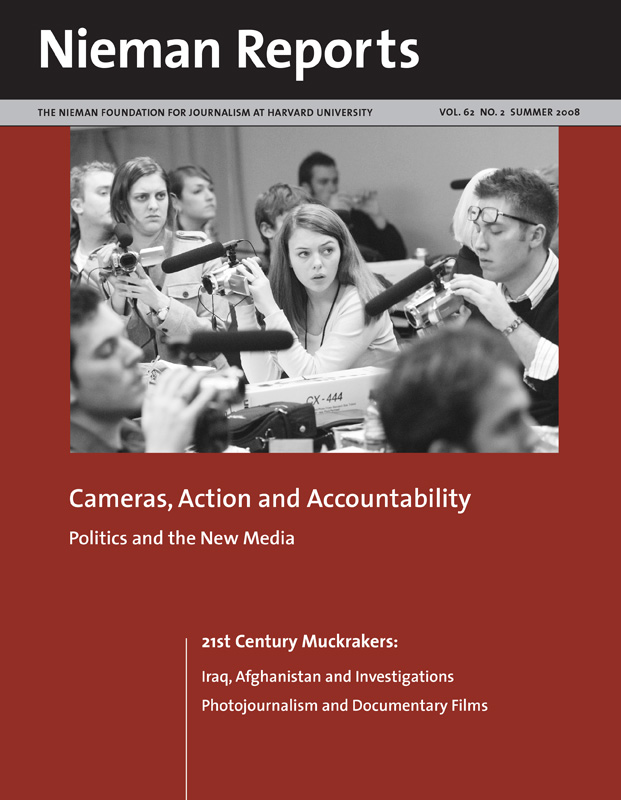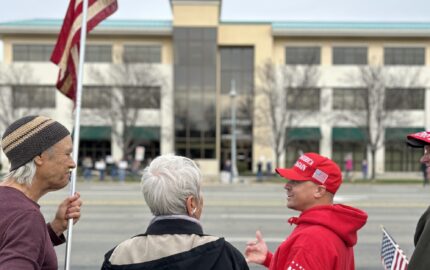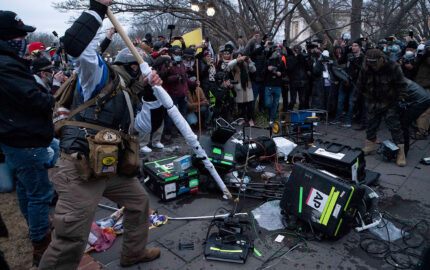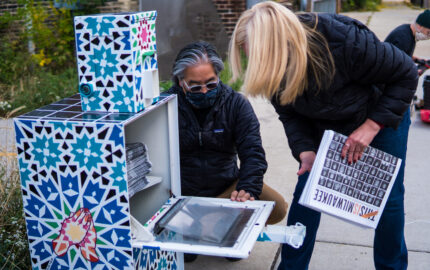
Music videos have long been what most people associated with MTV, but early on we realized our audience was passionate about a wide variety of social issues. To connect with them, covering the issues they care about — from AIDS awareness to the environment — became part of our mission. Then, about 10 years in, we heard from young people in our audience about why, despite their interest in social issues, they had largely checked out of national politics. Politicians weren't talking to young voters at all, or in rare attempts when they tried, they weren't speaking in a language that resonated with them.
This insight brought us in 1992 to our youth-centric election coverage, "Choose or Lose." That year, Bill Clinton credited MTV with helping him get elected. MTV's campaign coverage was groundbreaking then and, every four years, as the election cycle rolls in again, we find ways to be innovative in how we connect our predominantly youthful audience with what's going on in politics.
How to Innovate in 2008
The attitude of political candidates toward youth has changed considerably since Bill Clinton first ran for President. So last year, with a new election season on the horizon, our question became, "How will we innovate in 2008?"
In answering this question, we considered two major factors:
- Young voters showed unprecedented participation in both the 2004 presidential election and the 2006 congressional elections. This told us that they were likely to be engaged in this cycle.
- The explosion of new media tools during the past four years allows young people to express themselves and organize around candidates or issues they care about in new ways.
Out of these conversations emerged the idea that is the cornerstone of our election coverage this year. We'd form a corps of mobile, youth journalists spread across the country telling young people's political stories in their own words and using whatever technologies they prefer. Ian Rowe, our vice president of public affairs, pitched the idea to the Knight Foundation, who supported it as part of their Knight News Challenge. The foundation's interest is in finding out whether and how youth would use mobile technologies to gather, consume and share election news. With these fundamentals in place, we began our search for the members of this troop, which we dubbed "Street Team '08."
Given that our target was to attract young people to apply — and knowing they travel more comfortably in the digital world — we put our entire application process and our recruitment outreach online. Those who expressed interest would then move through an intensive, multistep, online selection process, in which we considered experience and evaluated potential.
Our resulting group of reporters is extremely varied, with different socioeconomic and ethnic backgrounds and representing different political leanings and ages that fall within the full spectrum of our MTV audience. Likewise, our team members are quite diverse when it comes to their experiences in media. A few are documentary filmmakers; some are local newspaper writers, but then there's the phlebotomist who never had looked through the lens of a camera.
Given what they knew already — and what they would need to know to do this reporting job — it was critical that we bring the team members to our headquarters in New York for a "journalism boot camp." The three-day Street Team '08 orientation was an ambitious undertaking. These 51 — one for each state and Washington, D.C. — relatively inexperienced "citizen journalists" needed to be transformed into a nimble crew of independent writer-shooter-producers.
To accomplish this task, we brought in such industry mavericks as New York University journalism professor Jay Rosen and Gannett's vice president of design and innovation, Michael Maness, to cover topics ranging from "Field Production 101" to "Journalism in the Mobile Landscape." There was a special visit from The Associated Press's long-time political reporter Ron Fournier, straight off the campaign trail in New Hampshire, when he shared videotaped advice from political reporting notables like NBC Nightly News political analyst Tim Russert and correspondent Andrea Mitchell.
With as much information as could be crammed into three days, a backpack full of necessary equipment, including a small video camera and laptop computer, a handy production binder, and the love and support of the MTV News staff, Street Team '08 left New York City to head home and embark on their first week of reporting.
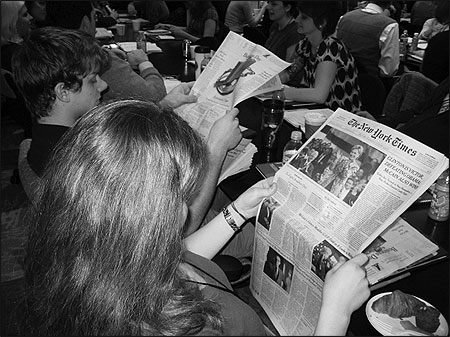
Street Team Reporting
Since January, each Street Team member has filed one blog or video report each week. Their reports appear online at www.streetteam08.com and on a customized mobile WAP [wireless application protocol] site (m.streetteam08.com), and they also have the opportunity to "bubble up" to any of MTV's broadcast networks, the AP Online Video Network, and specialized mobile video carriers.
Unlike most of MTV's programming, our pro-social initiatives — of which this is one — are not entirely dependent on ratings to ensure success. This allows us to experiment with content, format and distribution, and Street Team '08's work is no exception. This project is MTV's foray into the "pro/am journalism" model. The material generated by our reporters is not exactly user-generated content, but it certainly doesn't run through the editorial process that MTV News pieces do. In this model, the "pros" are an editorial board made up of MTV News producers who vet the Street Team content before it goes public, and the "ams" are the Street Teamers themselves.
We have also been able to do some exciting journalism experiments that involve the Street Team using new technology. The most ambitious of these happened on Super Tuesday, when we had reporters in 23 primary and caucus states doing live mobile-to-Web broadcasting with Nokia N95 video phones and an alpha version of Flixwagon's embeddable player. While the video quality of the pieces was poor, the relevancy and immediacy of the reports was hard to beat. One of our edgier reporters brought her video phone right into the voting booth with her to visually prove the ease of the voting process and had her footage broadcast on MTV to a potential audience of 88 million that same hour.
As befitting its experimental nature, there have been challenges with this project. Logistics is one, but that's to be expected since only two of us supervise the 51 reporters. Gaining a dedicated audience is another that is faced by news organizations everywhere. Yet the blogosphere presents a whole new array of issues for us, as it does for many other news outlets.
Many of our young reporters are immersed in blogs with very firm ideological orientations, and on those the lines between "news" and "opinion" are blurred almost beyond recognition. One of our biggest tasks then becomes finding ways to get them to uphold journalistic values, including a commitment to accuracy, while still taking advantage of the less-structured nature of the Web so their own personalities can come through in their reporting. After all, the point of this project is to give young people a voice and a platform to air their political concerns.
So we have tried in a number of ways to help our reporters understand the distinction between "personality" and "bias" as we work to guide them through these ambiguous waters. For example, our Idaho reporter, Brian T. Rich, approached me about doing an editorial about what it's like to be an atheist voter in the United States. RELATED WEB LINK
think.mtv.com/
BrianTRichI advised him to be transparent about his personal beliefs, but to open the story up to cover the role religion is playing in the race and use concrete examples to back up his points. The resulting piece, though still feeling like an editorial, is not merely a personal rant. Rather, it is an interesting analysis of the historical relationship between church and state, as he describes how that relationship has changed in recent years.
Street Team '08 reporters have proven themselves to be successful in digging up local political stories of interest to youth. These are stories that MTV never would have had the time or resources to cover in the past. In addition to "horserace" primary stories, our Street Teamers have covered everything from young surfers fighting to save an historic stretch of California coast from the proposed building of a toll road to the potential sale of Wrigley Field's naming rights and the first use of a Taser by Eugene, Oregon police. We can only hope that as the country approaches the party conventions this summer and months of campaigning that will follow, our budding reporters continue to find and tell untold stories and, as they do so, move closer to the "pro" than the "am."
